Brexit: More than £100K spent on Facebook and other ads for May's deal
- Published
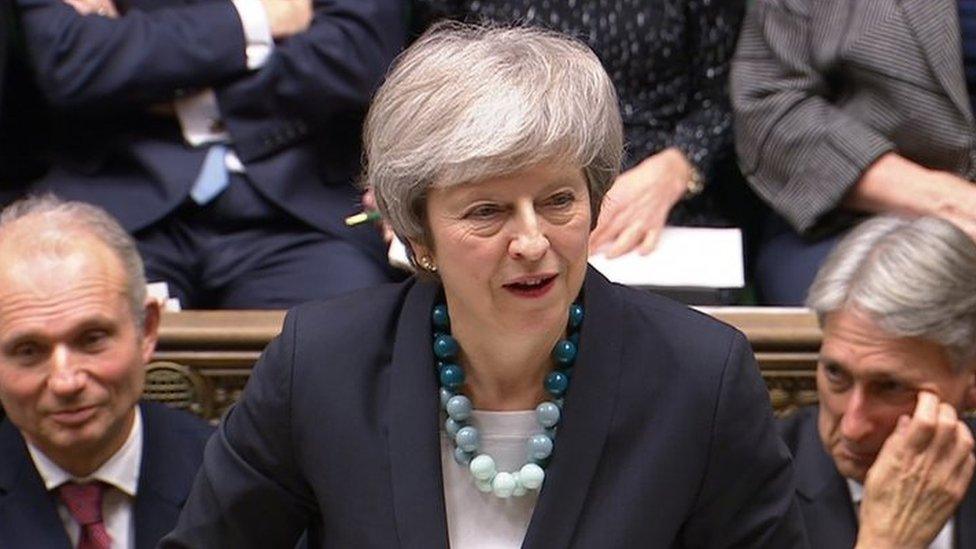
The government spent almost £100,000 on Facebook adverts promoting Theresa May's Brexit deal before calling off a Commons vote on it, figures released by the US social media giant reveal.
Labour leader Jeremy Corbyn branded it a "waste of public money" in the House of Commons on Tuesday.
The overall spend on social media adverts by the government is likely to be far higher, however.
Ads were also bought on Twitter, LinkedIn and Google, but neither the companies nor the government would tell the BBC how much money was spent.
What was spent on Facebook?
Prime Minister Theresa May called off Tuesday's crucial vote on her Brexit deal so she can go back to Brussels and ask for changes to it, admitting the deal "would be rejected by a significant margin" if MPs voted on it. It is due to be put to the vote again before 21 January.
Facebook's ad library, external shows the UK government page, external spent £96,684 to promote 11 videos about the Brexit deal between December 2 and 8.
"There were days when both the prime minister and I served as local councillors. Had we spent public money in that way we would have been surcharged for a waste of public money without proper approval," Jeremy Corbyn said on Tuesday.
A government spokesperson said "communicating government policy effectively to the public is a core function of the Civil Service".
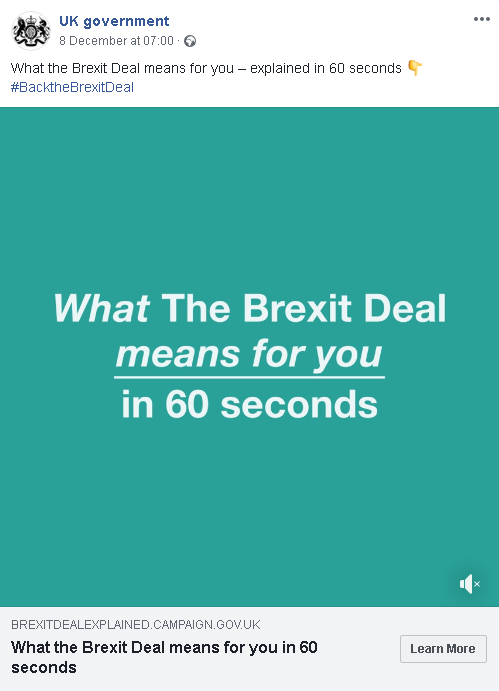
The government has been spending money on Facebook adverts promoting its Brexit deal

Facebook's figures show between £1,000 and £5,000 was spent on two separate Facebook videos called "What The Brexit Deal means for you."
A similar amount was spent on videos targeted at people in Wales and Northern Ireland saying the Brexit deal "delivers" for those places.
Slightly more was spent on two adverts directed at people in Scotland.
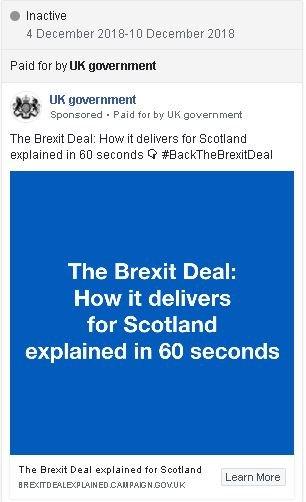
The government has been specifically targeting the people of Wales, Northern Ireland and Scotland

Even more cash - between £10,000 and £50,000 - was spent on three separate adverts focusing on what the government says the deal means for trade, immigration and the economy.
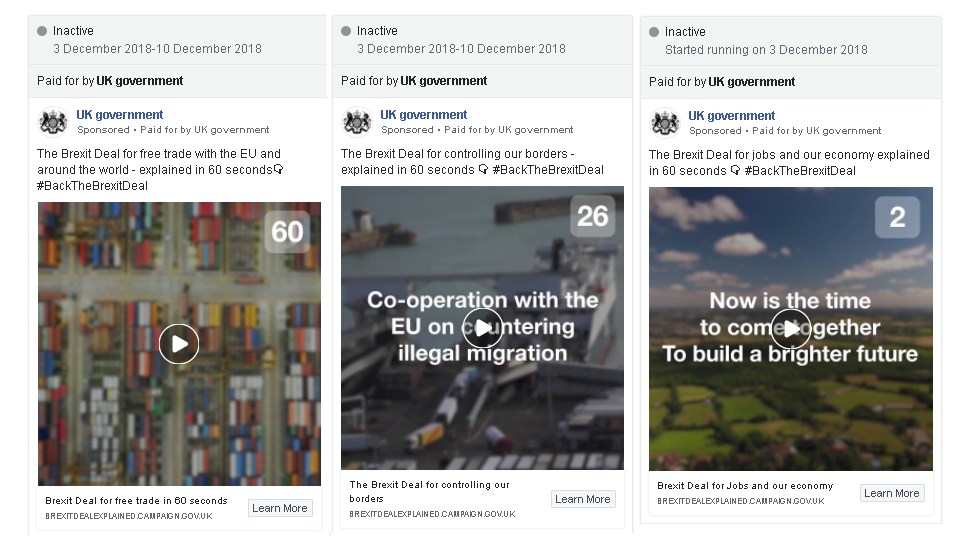
The government spent over £10,000 on these three adverts

According to figures in Facebook's ad library each of these three posts got more than a million "impressions".
The company defines 'impressions' as "the number of times that an ad was seen on a screen" and "may include multiple views by the same people".
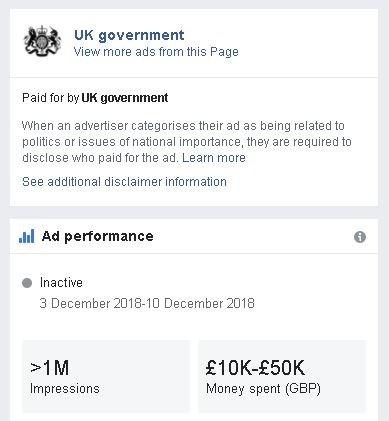
Three ads got more than a million "impressions" on Facebook

Although there were no ads specifically targeted at England or regions of England, the audience breakdown of these three posts shows the vast majority of the audience were in England.
The figures also show the audience for these three widely-viewed ads was predominantly male.
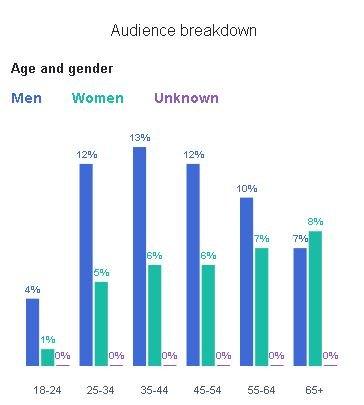
More men than women saw the ads

Last week the BBC revealed the government was in a bidding war with a campaigner against Mrs May's deal to push sponsored posts to the top of Google search rankings.
When people in the UK searched "what does the Brexit deal mean," they were likely to see one of two very similar looking paid-for posts by either the UK government or a group called 'Britain's Future' which opposes the deal from a pro-Brexit position.
Britain's Future is run by a journalist and campaigner called Tim Dawson who told the BBC the ads were paid for by "small donations from friends and fellow Brexiteers".
A government spokesperson told the BBC: "we have a duty to ensure official HMG information relating to Brexit is highly visible and easily accessible to the public and paying to appear at the top of search results is an effective way to do this."
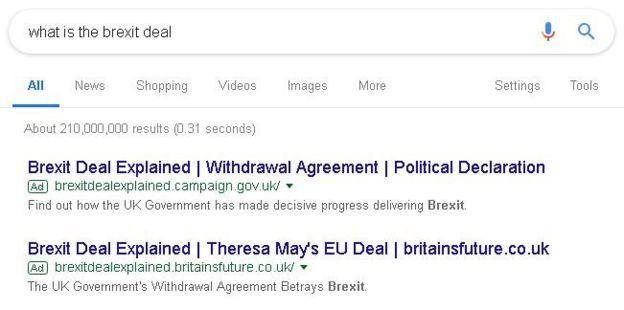
The government also paid for promoted results on Google search

Dawson's website looked visually similar to the government's 'Brexit Deal Explained' page.
However the text on the page was very different, saying May's deal is a "surrender" to the EU.
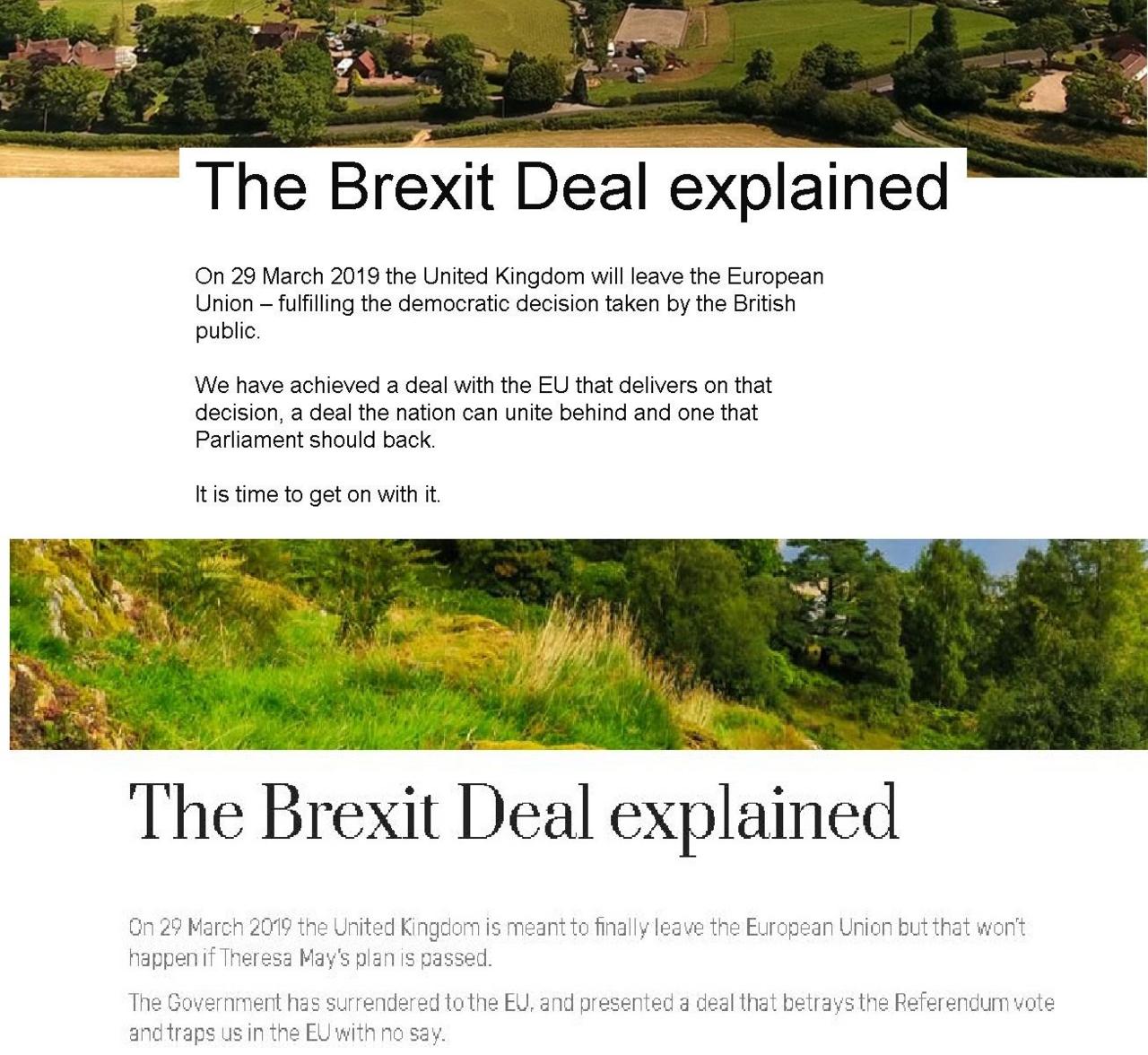
An anti-deal campaign group promoted a website looking very similar to the government's own one

The government has also been spending money advertising its Brexit deal on LinkedIn and Twitter.
The BBC asked Twitter, LinkedIn and Google how much the government had paid them to advertise on their sites - but none would give a figure.
LinkedIn bans political adverts - such as supporting a particular party or candidate in an election - but these government posts are not classified as such by the company.

The government is also spending money advertising on Twitter

Google recently introduced new transparency measures in the USA, external and is doing similar for the upcoming EU parliamentary elections, external - but no such system is currently in place in the UK.
Twitter also has plans for a political ads transparency feature, external but this is also not in place yet.
Therefore it will be a while until we know how much the government spent advertising May's Brexit deal on social media in the run up to the vote that never took place.
The Cabinet Office is the government department that spends money on these online adverts and does routinely publish expenditure on its website.
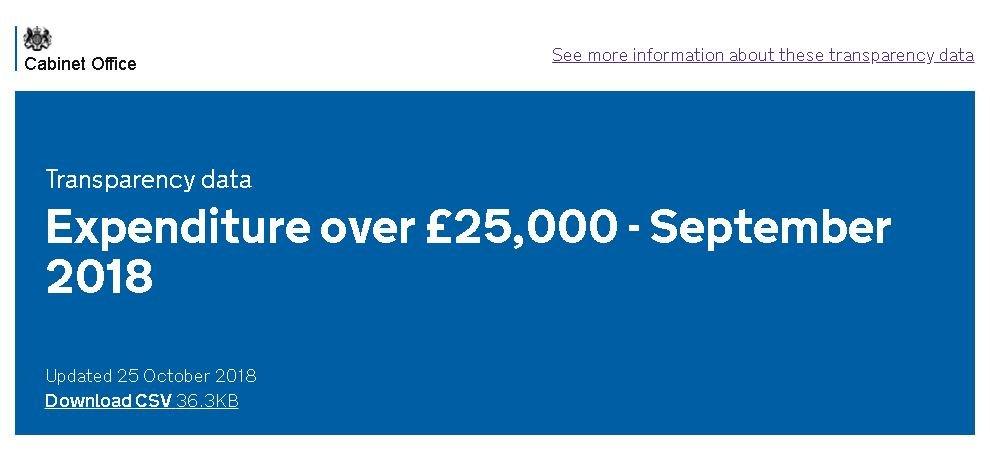
The Cabinet Office makes expenditure transparent - but subject to a delay

However this data only covers expenditure over £25,000 and is subject to a big time delay - the last release was on 25 October.
From the last set of figures, external we know the government spent about £44,219 on Facebook in September as well as a similar amount on LinkedIn.
We do not know exactly what adverts this money bought - the LinkedIn adverts were bought by the Cabinet Office's "exec recruit management team" suggesting the they were job ads rather than promotion of government policy.
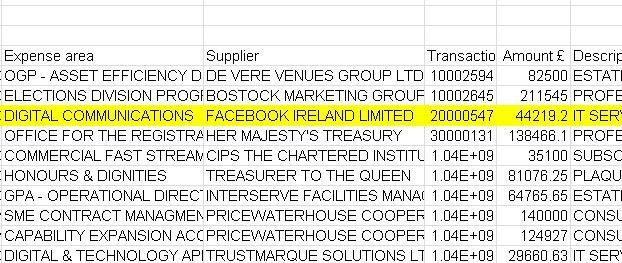
Government figures show how much was spent on Facebook in September

So, we know the government spent almost £100,000 on Facebook ads in the run up to the aborted vote on Mrs May's deal.
But we do not know how much in total was spent in total promoting the deal on social media and may not for a while - if at all.
A government spokesperson said the next set of transparency figures are likely to be released in January - and these figures will only cover expenditure above £25,000.